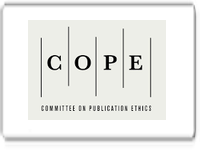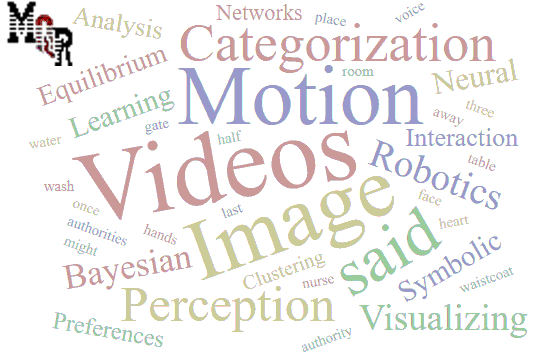Factores que afectan el desarrollo de la comprensión auditiva de adolescentes aprendices de inglés como lengua extranjera (EFL)
DOI:
https://doi.org/10.56048/MQR20225.8.2.2024.1607-1624Palabras clave:
factores; comprensión auditiva; adolescentes; EFLResumen
La comprensión auditiva se considera una de las habilidades en inglés que ayuda a comunicarse con otros, no solo entender lo que el hablante está diciendo, es más que eso. Escuchar implica conocimiento del vocabulario, la gramática y la fonética del hablante. También comprende el contexto de las palabras y frases del idioma. Esta revisión se enfocó en analizar los desafíos que enfrentan los adolescentes en cuanto a la comprensión auditiva en clases de inglés como lengua extranjera (EFL). Como resultado de esta revisión, el factor primario que puede afectar o influir en la comprensión auditiva es el educador, porque tienen la responsabilidad de guiar a los estudiantes para desarrollar y mejorar sus habilidades como la lectura, la escritura, el habla, la gramática y la comprensión oral, que son muy importantes cuando se trata de aprender inglés. Los profesores deben analizar las estrategias que implementan dependiendo de la edad del estudiante y los desafíos que puedan enfrentar en la comprensión auditiva, como la falta de conocimiento en vocabulario, gramática y los diferentes acentos de hablantes nativos y no nativos de diferentes nacionalidades.
Descargas
Métricas
Cited
DOI: 10.56048![]()
Citas
Al-Kadi, A. M., & Ahmed, R. A. (2018). Evolution of english in the internet age. Indonesian Journal of Applied Linguistics,, 7(3), 727-736. doi:10.17509/ijal.v7i3.9823
Al-khreshesh, M. H., & Alruwaili, S. (2023). Metacognition in listening comprehension: Analyzing strategies and gender differences among Saudi EFL university students. Cogent Social Sciences, 10(1). doi:10.1080/23311886.2023.2291954
Al-Shammari, H. (2020). The impact of strategy instruction on Iraqi EFL learners' listening comprehension and metacognitive strategy use. MEXTESOL Journal, 44(4).
Angelis, A. (2022). EF english proficiency index and english in Ecuador: Uncertain assumptions of the international ranking. Revista Andina de Educación, 5(2), 1-8. doi:10.32719/26312816.2022.5.2.11
Astrid, A., Khodijah, N., Zuhdiyah, Z., & Yuliyanti, A. (2024). Students’ listening anxiety factors and solutions: Multiple case studies. Studies in English Language and Education, 11(1), 41-58. doi:https://doi.org/10.24815/siele.v11i1.30976
Büyükahıska, D., & Uyar, A. (2019). The effects of different accents on listening comprehension in EFL classes. OPUS International Journal of Society Researches, 14(20), 1369-1371. doi:10.26466/opus.610859
Cheng, Y. (2018). Unfamiliar accented english negatively affects EFL listening comprehension: It helps to be a more able accent mimic. Journal of psycholinguistic research, 47, 899-911. doi:10.1007/s10936-018-9562-y
Dalman, R. M. (2016). The relationship between listening anxiety, listening comprehension strategies, and listening performance among Iranina EFL university students. International Journal of Modern Language Teaching and Learning, 1(6), 241-249.
Faisal, I. Y. (2019). An analysis of students´ difficulties in learning listening at the tenth grade of Ma Nurul Falah learning. Journal On Education, 1(3), 569-574.
Gilakjani , A., & Sabouri, N. (2016). Learners' listening comprehension difficulties in english language learning: a literature review. English Language Teaching, 9(6), 123-133. doi:10.5539/elt.v9n6p123
Hughes, J. L., Cannon, B., Camden, A. A., Treadwell, K. R., Thomas, J. G., & Perdue, B. M. (2023). Conquering APA style for the seventh edition: Advice from APA style experts. Psi Chi Journal of Psychological Research, 28(1), 2-3. doi:10.24839/2325-7342.JN28.1.2
Karakuş, E. (2019). The effect of listening attitude and listening anxiety on listening comprehension: A Regression Model. Universal Journal of Educational Research, 7(2), 356-362. doi:10.13189/ujer.2019.070207
Mamadaminova , N., & Khadjikhanova, S. (2021). Factors influencing teenager's motivation in learning english in uzbekistan–a case study of Westminster International University in Tashkent, pre-foundation course. European Journal of Foreign Language Teaching, 5(5), 43-51.
Namaziandost , E., Imani, A., Sharafi, S., & Banari, R. (2020). Exploring the relationship between listening strategies used by Iranian EFL senior high school students and their listening comprehension problems. International Journal of Research in English Education, 5(1), 36-48.
Nimani, N., & Dagarin, M. (2019). Correlation between students’ english listening skills, vocabulary skills and out-of-school listening exposure. The New Educational Review, 55, 42-50. doi:10.15804/tner.2019.55.1.03
Orfan, S. N. (2020). Afghan EFL students' difficulties and strategies in learning and understanding English idioms. Cogent Arts & Humanities, 7(1), 4-7. doi:https://doi.org/10.1080/23311983.2020.1796228
Quinonez, A., Cabrera, P., Gonzalez, P., Castillo, L., & Ochoa, C. (2020). A comparative study of EFL listening difficulties in public and private Ecuadorian high school. Pertanika Journal of Social Sciences and Humanities, 28(3), 2082-2084.
Rungsinanont, S. (2023). Factors and problems affecting english listening comprehension skills of Eic undergraduate students at Rmutl Tak, Thailand. Journal of Namibian Studies: History Politics Culture, 35, 2953-2973.
Saharkhiz, A., Jalil, F., & Balalaei, S. (2019). The effect of use of native-accent and non-native accent materials on the Iranian EFL learners’ listening comprehension: An EIL perspective. International Journal of Research in English Education, 4(3), 42-52.
Saraswaty , D. (2018). Learners’difficulties & strategies in listening comprehension. English Community Journal, 2(1), 139-140. doi:https://doi.org/10.32502/ecj.v2i1.1003
Snyder, H. (2019). Literature review as a research methodology: An overview and guidelines. Journal of Business Research, 104, 335-338. doi:https://doi.org/10.1016/j.jbusres.2019.07.039
Stankova, E., Hruby, M., & Hasilova, K. (2022). Is listening comprehension in a foreign language affected by age? Journal of Language & Education, 8(1), 167-179. doi:https://doi.org/10.17323/jle.2022.11292
Tong, H. (2019). An overview of listening skill theories. Proceedings of Elt Upgrades, 268-269. doi:10.5281/ZENODO.3591877
Tran, T., & Duong, T. (2020). Insights into listening comprehension problems: A case study in Vietnam. PASAA: Journal of Language Teaching and Learning in Thailand, 59, 78-96. doi:10.58837/CHULA.PASAA.59.1.4
Yang, X., Jiang, M., & Zhao, Y. (2017). Effects of noise on english listening comprehension among Chinese college students with different learning styles. Frontiers in psychology, 8, 1-7. doi:https://doi.org/10.1080/23311983.2020.1796228
Publicado
Cómo citar
Número
Sección
Categorías
Licencia

Esta obra está bajo una licencia internacional Creative Commons Atribución 4.0.
Los autores se comprometen a respetar la información académica de otros autores, y a ceder los derechos de autor a la Revista MQRInvestigar, para que el artículo pueda ser editado, publicado y distribuido. El contenido de los artículos científicos y de las publicaciones que aparecen en la revista es responsabilidad exclusiva de sus autores. La distribución de los artículos publicados se realiza bajo una licencia 



































